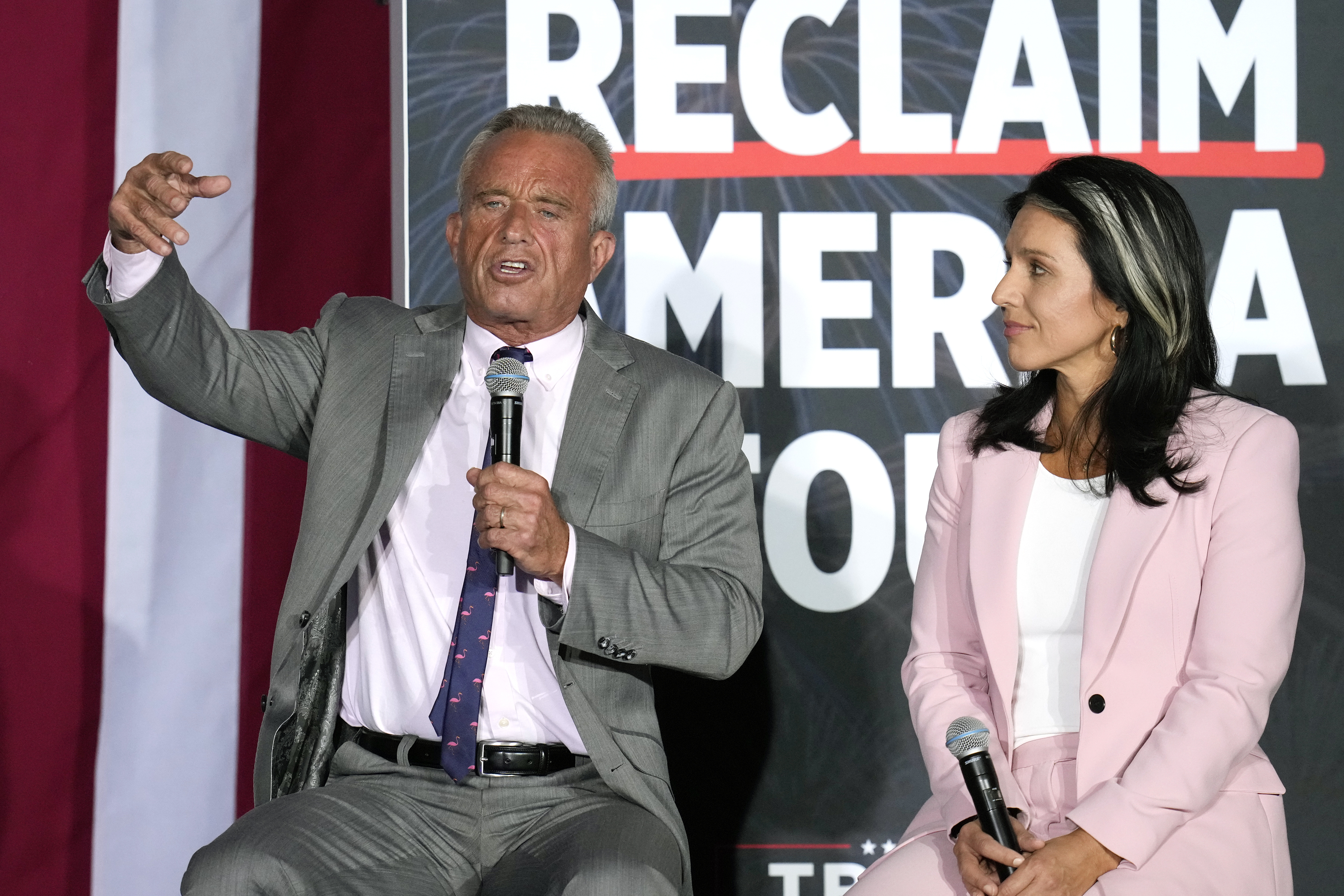
After months of gathering signatures, filing petitions and navigating lawsuits, constitutional amendments that would protect or expand abortion rights are officially set to appear on the general election ballot in 10 states.
Voters in the swing states (Arizona and Nevada), blue-leaning states (Colorado, Maryland and New York) and red-leaning states (Florida, Missouri, Montana, Nebraska and South Dakota) will have the ability to directly decide the future of abortion access this fall. Among the organizers who submitted signatures to qualify an abortion rights amendment for this year's ballot, only those in Arkansas fell short.
These 10 initiatives will be the latest to pursue enshrining abortion access in a state's constitution since the Supreme Court overturned Roe v. Wade in 2022.
Here is what the proposed amendments would do if passed — and how they would impact current abortion care laws in those states.
Arizona
The proposed constitutional amendment on the ballot in this crucial southwestern battleground would create a “fundamental right” to an abortion up until fetal viability, or about the 24th week of pregnancy. After that point, the measure would bar the state from restricting abortion in situations when the health or the life of the pregnant person is at risk, according to the treating health care professional.
Politics
Under current Arizona law, abortion is legal up until the 15th week of pregnancy, with an exception after that to save the woman’s life and no exceptions after that for rape or incest. If voters approve the proposed ballot measure in November, it would effectively undo the 15-week ban. It needs a simple majority of support to pass.
Colorado
The proposed amendment in Colorado would declare formally that “the right to abortion is hereby recognized” and that “government shall not deny, impede or discriminate against the exercise of that right.”
It also explicitly states that the government may not prohibit health insurance coverage for abortion, including insurance plans for public employees and publicly funded insurance plans. That provision would effectively undo a 1984 law that barred people from using their health insurance to pay for abortion care.
The ballot measure in Colorado — where there are no laws restricting abortion and no gestational limits at all for women seeking an abortion — is intended to formally enshrine those rights, a move organizers say is crucial to prevent lawmakers from having any future opportunity to undo them.
To pass in November, the measure requires the support of 55% of voters under state law, not just a simple majority.
Florida
The state's ballot initiative would bar restrictions on abortion before fetal viability and would include exceptions past that point for “the patient’s health, as determined by the patient’s healthcare provider.”
Passage of the amendment would effectively undo the state’s six-week ban on abortion, which includes exceptions for rape, incest and the life of the woman.
Under Florida law, the measure must receive the support of 60% of voters in November, rather than a simple majority, to pass.
Maryland
Lawmakers, who control the amendment process in Maryland rather than citizens, voted to place a measure on the ballot that would enshrine abortion rights in the state constitution.
It would add language to guaranteeing the right to “to make and effectuate decisions to prevent, continue, or end one’s own pregnancy.”
Abortion is already legal in the state through fetal viability, with exceptions afterward when the woman’s life or health is at risk, or when a fetal anomaly is detected. A simple majority is needed for passage.
Missouri
Missouri's amendment would enshrine language in the state constitution to protect abortion rights up until fetal viability, with exceptions after that point for the life and health of the mother.
The amendment specifically states that the government “shall not deny or infringe upon a person’s fundamental right to reproductive freedom,” which the amendment defines as all decisions related to reproductive health care, explicitly including “birth control,” “abortion care” and “miscarriage care” — up until fetal viability. The proposal also deems any “denial, interference, delay or restriction” of such care as “invalid.”
After that point, the government may regulate abortion except in cases where a treating health care professional has judged the “life or physical or mental health” of the mother to be at risk.
At the same time, the amendment would allow lawmakers and state officials to restrict or limit abortion rights in situations in which doing so “is for the limited purpose and has the limited effect of improving or maintaining the health of a person seeking care, is consistent with widely accepted clinical standards of practice and evidence-based medicine, and does not infringe on that person’s autonomous decision-making.”
Missouri currently has one of the strictest abortion bans in the U.S. in place, with exceptions to protect the life of the mother and for medical emergencies. If the amendment were to pass, it would effectively undo that law. A simple majority is needed for passage.
Montana
The ballot measure in Montana would amend the state constitution to provide a right to “make and carry out decisions about one’s own pregnancy, including the right to abortion.” It would also “prohibit the government from denying or burdening the right to abortion before fetal viability,” and “prohibit the government from denying or burdening access to an abortion when a treating healthcare professional determines it is medically indicated to protect the pregnant patient’s life or health.”
Abortion is currently legal in Montana until fetal viability, so enshrining abortion rights in the state constitution would serve to make it more difficult for lawmakers to undo current protections in the future. A simple majority is needed for passage.
Nebraska
In Nebraska, two dueling constitutional amendments will appear on the November ballot.
One of the ballot measures, known as “Protect the Right to Abortion,” would amend the state’s constitution to state that “all persons shall have a fundamental right to abortion until fetal viability, or when needed to protect the life or health of the pregnant patient.”
The other, called “Protect Women and Children,” bars abortions in the second and third trimesters, except in the case of a medical emergency or when the pregnancy is a result of sexual assault or incest.
Nebraska law currently bans abortion after 12 weeks of pregnancy, with exceptions for rape, incest and saving the mother’s life. The pro-abortion rights measure would effectively undo that law, while the other would basically codify the law in the state constitution.
For a ballot measure to pass in Nebraska, it needs to receive a majority of the vote and at least 35% of the total votes cast in the election in favor of it. If both amendments pass, the one with the most votes prevails.
Nevada
In Nevada, abortion is already legal until the 24th week of pregnancy. But fearing that such rights could be undone in the future, reproductive rights advocates succeeded in placing a constitutional amendment on the November ballot that would enshrine similar language, protecting abortion rights up until fetal viability.
Under state law, even if the measure passes in November, voters would need to approve it again in 2026 before the Nevada constitution is formally amended.
New York
As in Maryland, lawmakers, not citizens, control the amendment process in New York. State legislators voted to put a measure on the ballot that would enshrine abortion rights in the state constitution.
The Equal Protection of Law Amendment doesn’t actually explicitly mention abortion, but would enshrine rights in the state constitution designed to protect against anything the government does to affect a person’s “pregnancy, pregnancy outcomes, and reproductive healthcare and autonomy.”
In New York, abortion is legal up to around the 24th week of pregnancy. Passage of the proposal — which requires a simple majority — would effectively cement those projections constitutionally.
South Dakota
The proposed constitutional amendment on the ballot in South Dakota would make abortion legal in all situations in the first trimester of pregnancy. It would allow “regulation” by the state of abortion in the second trimester of pregnancy, but such regulation “must be reasonably related to the physical health of the pregnant woman.”
The amendment would allow “regulation or prohibition” by the state in the third trimester, except in cases when a physician has determined that the care would be necessary to “preserve the life or health” of the woman.
If it passes, the amendment would effectively undo the state’s near-total ban on abortion, which snapped back into effect after Roe v. Wade was struck down in 2022. The law, which abortion advocates say is among the harshest in the U.S., prohibits all abortions except when necessary to save the woman’s life.
The ballot measure will need to win a simple majority to pass.
This article first appeared on NBCNews.com. Read more from NBC News here:



